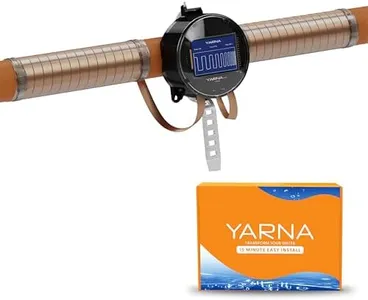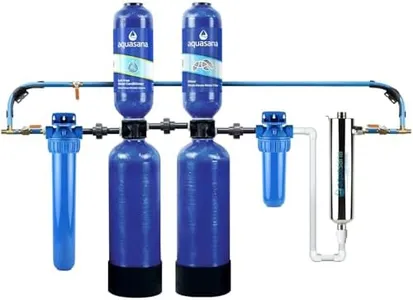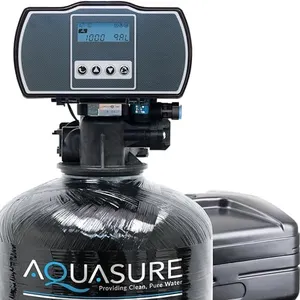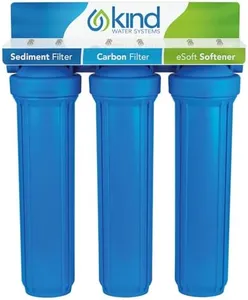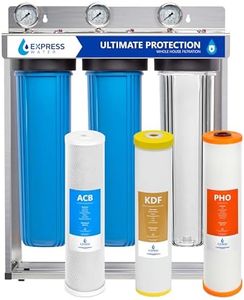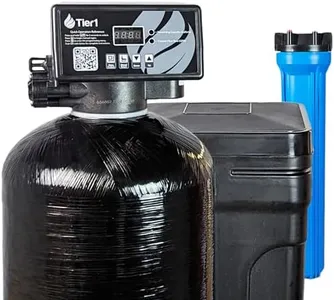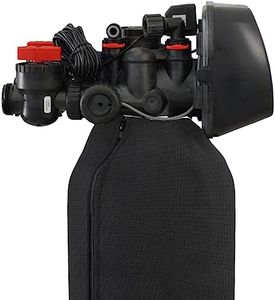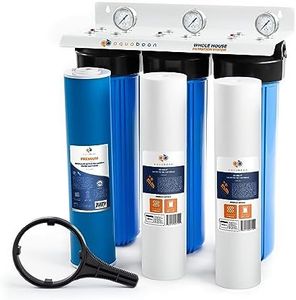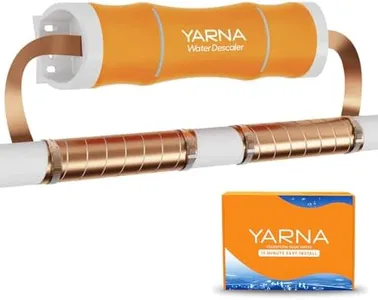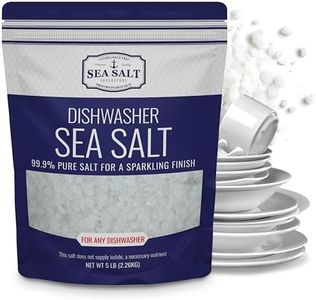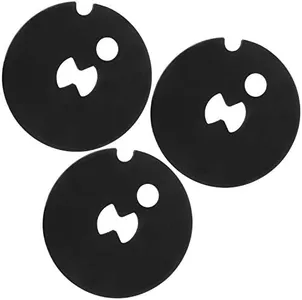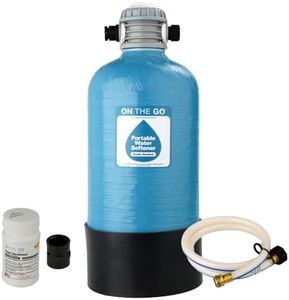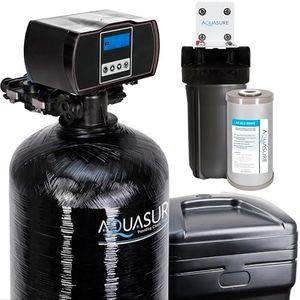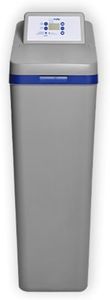10 Best Water Softener 2025 in the United States
Our technology thoroughly searches through the online shopping world, reviewing hundreds of sites. We then process and analyze this information, updating in real-time to bring you the latest top-rated products. This way, you always get the best and most current options available.

Our Top Picks
Winner
Aquasana Whole House Water Filter System | 1,000,000 Gallons | Salt-Free Softener Alternative | UV, Carbon & KDF | Tackles up to 99.99% Chlorine, Bacteria, Viruses, Sediment & Scale | EQ-1000-AST-UV
The Aquasana EQ-1000-AST-UV is a whole-house water filtration system that serves as a salt-free alternative to traditional water softeners. Instead of using salt to soften water, it uses advanced filtration methods—combining carbon, KDF, UV light, and a special scale control media—to reduce chlorine, bacteria, viruses, sediment, and scale buildup. This means it does not soften water in the usual sense (no removal of hardness minerals) but prevents scale damage in pipes and appliances without salt or chemicals.
This system is ideal for households with moderate hardness levels (under 15 grains per gallon) and specific water conditions, making it a good choice for people looking to improve water quality without adding salt or requiring complex maintenance. It supports a high water flow rate suitable for large homes and lasts up to 10 years or 1 million gallons, which provides excellent value. However, since it doesn’t use resin or traditional ion-exchange softening, it won’t reduce hardness minerals or soften water in the classic way, which some users might expect. It also lacks a bypass valve, which could be a consideration during installation or maintenance.
This system is most suitable for those wanting cleaner, healthier water with minimal upkeep and who have moderate hardness levels rather than heavy hard water problems.
Aquasure Harmony Series 48,000 Grains Whole House Water Softener w/High Efficiency Digital Metered Control Head (48,000 Grains)
Most important from
2883 reviews
The Aquasure Harmony Series 48,000 Grains Whole House Water Softener is designed for homes with 3-4 bathrooms, making it suitable for larger families or households with higher water demands. One of its key strengths is its grain capacity, which allows it to efficiently handle hard water, removing unpleasant minerals like calcium and magnesium. This results in softer water, which is gentler on skin and helps prevent scale buildup in plumbing and appliances, potentially extending their lifespan.
This model also features a high-efficiency digital metered control head, giving users the flexibility to adjust settings based on their water quality and usage. The automatic regeneration process means you won’t have to worry much about manual upkeep, which is a big plus for convenience. Additionally, its pre-filter removes a variety of contaminants, improving water quality beyond just softness.
However, there are some considerations to keep in mind. While the flow rate of 12 gallons per minute is decent, it may not be sufficient for larger households with very high simultaneous water use. Some users might find the installation of the unit a bit cumbersome, as it is a freestanding model weighing 120 pounds, which might require assistance for setup. Also, while the 5-year warranty and lifetime tech support are attractive, some might prefer a product with an even longer warranty for added peace of mind.
Most important from
2883 reviews
Kind Water Systems Whole House Salt-Free Water Softener and Filter Combo - High Performing Coconut Shell Carbon Block Filtration - for Homes with Up to 6 Bathrooms - Easy Installation
The Kind Water Systems Whole House Salt-Free Water Softener and Filter Combo offers a unique approach by combining a salt-free softening alternative with a high-performance carbon block filtration system. It’s designed to serve homes with up to 6 bathrooms, providing a maximum water flow rate of 15 gallons per minute, which suits medium to larger households well. Instead of traditional ion-exchange resin or salt-based regeneration, this system uses coconut shell carbon filtration to reduce chlorine, chloramine, and volatile organic compounds (VOCs). This makes the water taste better and helps prevent scale buildup without adding salt to your water, which is great for those wanting a low-maintenance, environmentally friendly option.
This product might not soften water as thoroughly as traditional softeners that remove hardness minerals like calcium and magnesium. Its manual operation and lightweight design make installation manageable for most homeowners. The system is most suitable for users looking to improve water quality and reduce scale naturally without the hassle of salt and frequent regeneration cycles, while those seeking strong mineral removal and classic softening results might find it less effective.
